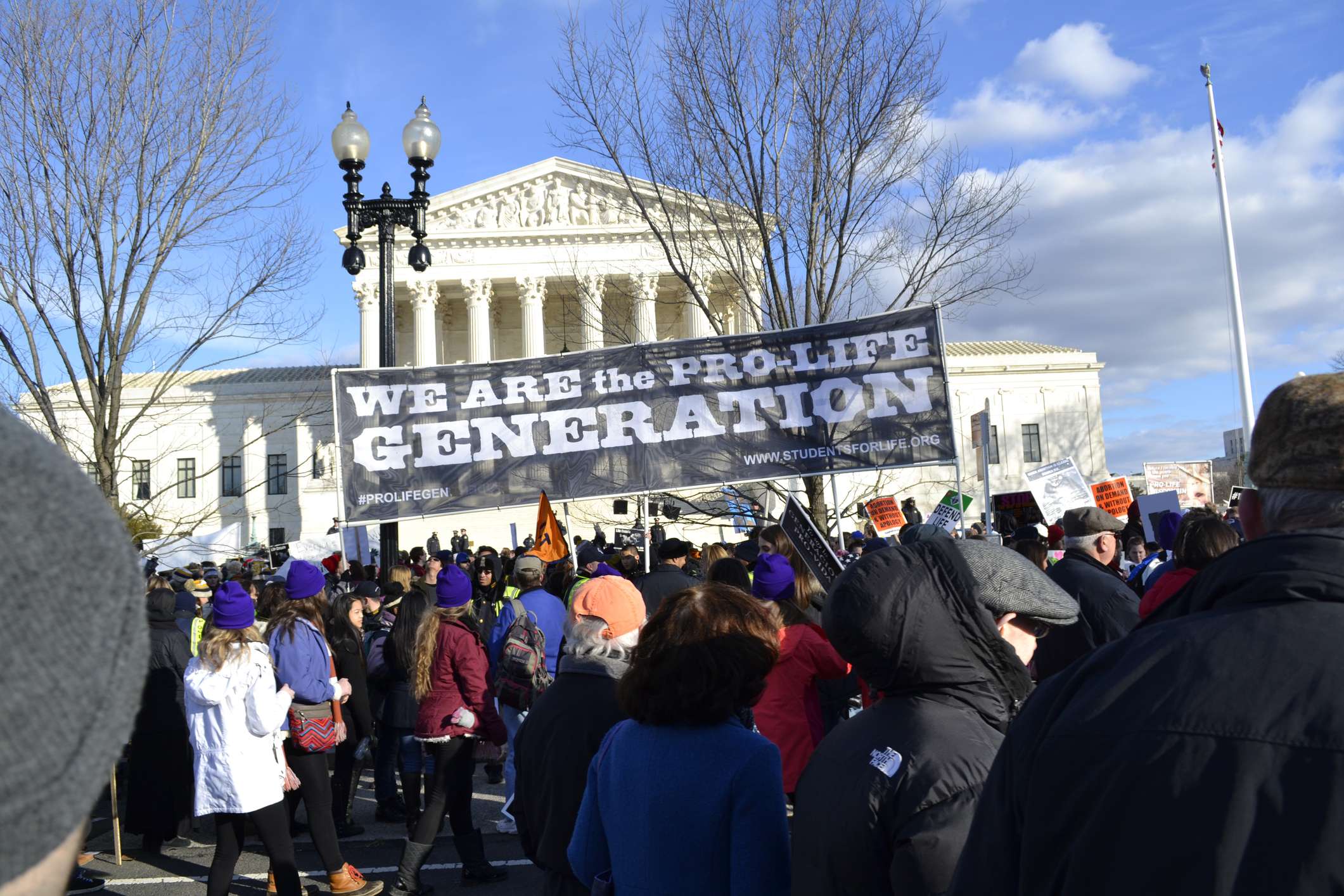Students for Life is in strong support of the Support and Value Expectant (SAVE) Mom and Babies Act of 2019, which will ensure FDA regulations are in place to protect women from chemical abortions. On September 22, Senator Cindy Hyde-Smith of Mississippi requested unanimous consent for the legislation, which the particularly pro-abortion Senator Patty Murray of Washington objected to. Members of Congress, however, can make their voices of support heard in other ways, by signing onto an amicus brief from Americans United for Life, in ACOG v. FDA.
The legislation and case to be heard before the 4th Circuit Court of Appeals is crucial due to the ruling of U.S. District Judge Theodore Chuang in Maryland, appointed by President Barack Obama. In a move which proves he and other activist judges are beholden more to the abortion industry than the safety of women, Judge Chuang ruled that FDA regulations necessitating an in-person visit before a chemical abortions create a “substantial obstacle.”
It is crucial for lawmakers, judges, and the American people to know the truth about the dangers involved in the chemical abortion method, especially without the use of these regulations, known as REMs.
The FDA approved chemical abortions in 2000 with “established limitations.” Judge Chuang’s ruling, however, “invalidated twenty years of federal government agency policy across the entire country,” as AUL explains.
The use of chemical abortion has been surging, contributing to an increase in recent abortion rates, and accounting for nearly 40 percent of abortion in 2017.
Even more troubling is “the risk of death appears to be 10 times greater with medical abortion (chemical abortion) than with surgical abortion.” Maternal death can result from a severe infection due to an incomplete abortion; with this method, incomplete abortions happen 5 percent of the time. Such an infection can also occur when a woman is too far along or if the pregnancy is ectopic.
Even if this method of abortion does not kill the mother, she could experience abdominal pain, nausea, vomiting, diarrhea, weakness, fever/chills, and headaches. The bleeding may last for weeks after the abortion.
Readers can learn more about this method here.
The brief also explains the key differences between women going into an abortion facility to start the process of this abortion method via telemedicine, and those who do so remotely. Through the latter option, women may obtain these drugs through the mail or Internet. They won’t get an ultrasound, which confirms and dates their pregnancy to see if they qualify for this regimen, or ensures that the pregnancy is not ectopic, in which case this method will also be ineffective. They similarly won’t get tested to see if their blood is Rh negative.
Pro-life lawmakers, including Senators Hyde-Smith; Mike Lee of Utah; Bill Cassidy of Louisiana, who was a medical doctor; and Mike Braun of Indiana, passionately spoke in defense of the legislation on September 22.
Cassidy mentioned that chemical abortions carry risks which are “severe… particularly when the mother has this without supervision by a healthcare provider.” The American people, if they “care about a woman’s health, they should be concerned when such procedures are allowed,” Cassidy continued.
It’s as if pro-abortion politicians so blindly follow Roe v. Wade that they can’t possibly regard any legislation to do with restricting or even regulating abortion based on its merits. This particularly applies to Senator Murray.
In response to Murray’s objection, Senator Lee gave arguably one of the most impassioned speeches on the issue. He destroyed the argument of this legislation having anything to do with Roe, saying that it “is manifestly not within the scope within this legislation.” He continued on to say that “you can feel however you want about Roe v. Wade, this isn’t it,” calling it “a convenient excuse to not have to deal with something, something real, something that has to do with the lives, and the health, and the well-being of women…”
AUL’s brief not only discusses health and safety regulations to do with the abortion procedure, but with properly screening patients for intimate partner violence (IPV), as well as reproductive coercion when it comes to their motivations for seeking an abortion. Included in the brief is ACOG’s own findings, that “The risk of intimate partner violence is increased” at this time of the pandemic and that “The severity of intimate partner violence may escalate during pregnancy or the postpartum period.”
The legislative confusion is not confined to one memorable Senate floor conversation. Judge Chuang, in his decision noted that the regulations were “likely to be unconstitutional.”
Not surprisingly, Judge Chuang referred to Roe v. Wade (1973), and subsequent cases which failed to overturn the decision, such as Planned Parenthood v. Casey (1992), Whole Woman’s Health v. Hellerstedt (2016) and June Medical Services LLC v. Russo (2020).
In their brief, AUL also references these cases, to offer a compelling argument as to how “The District Court Misapplied Casey’s Undue Burden Standard.”
It is thus crucial to have “clarity” as AUL asks of the courts in its brief, “regarding the bounds of the Government’s ability to safeguard the lives and health of their citizens.”
It should be a given that the government has a role in protecting preborn children and their mothers. In order to best understand the power in which the government legally can do so, members of Congress can do their part and add their name to this brief.
Share this post
Recent Posts

National Celebrate Life Weekend Dominates D.C.: Just Look at the Coverage
01 Jul 2025
The Pro-Life Generation REACTS: “Big, Beautiful” Budget Bill Vote One Step Closer to Defunding Planned Parenthood & ALL Abortion Vendors
01 Jul 2025
News: FIVE Lawmakers Recognized for Defending Life
30 Jun 2025
